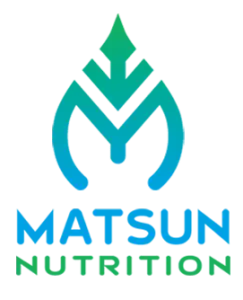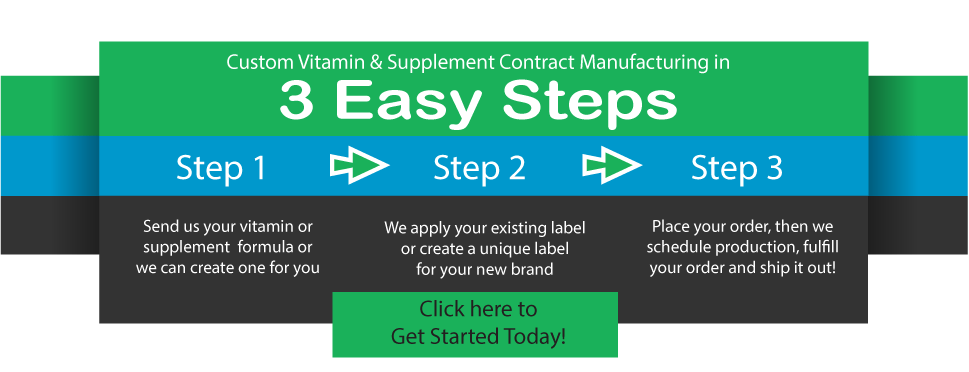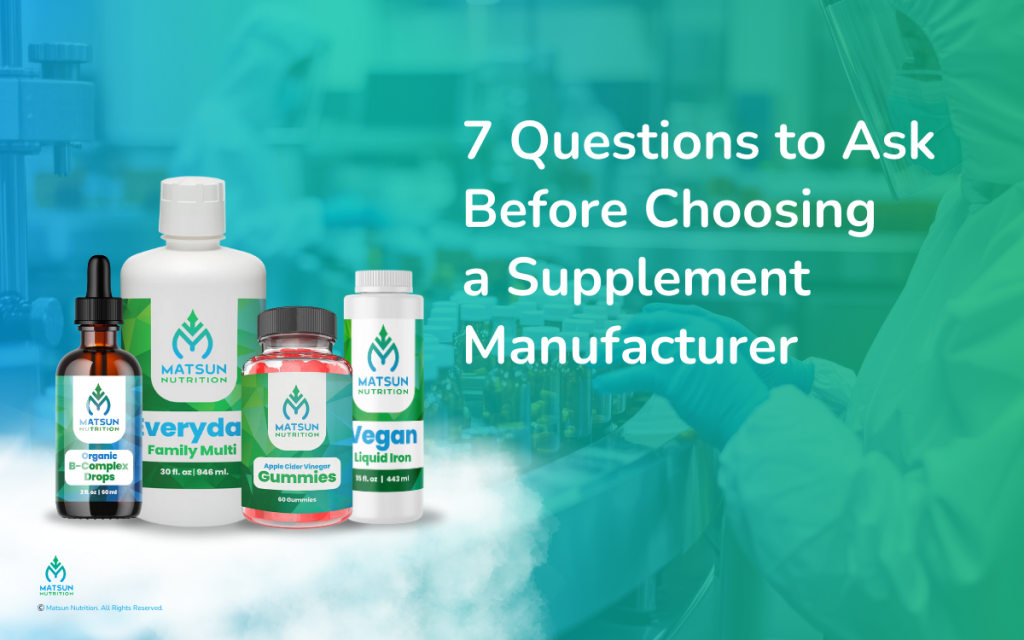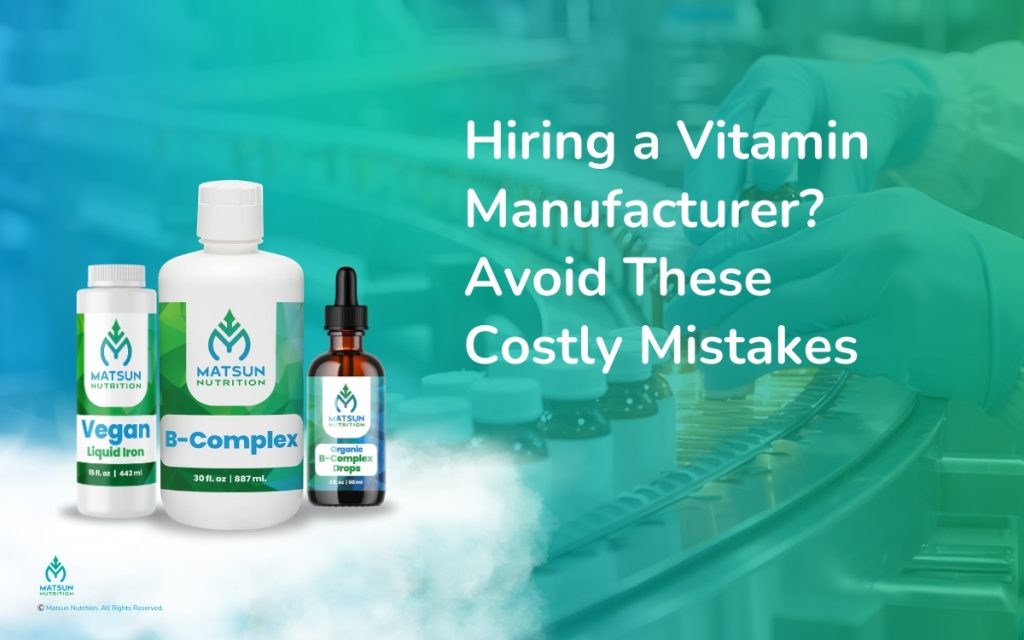What Does The Term “Made In USA” Really Mean?
The Federal Trade Commission (FTC) regulates product claims and benefits in the United States., including any U.S. origin claim such as “Made In USA” that may be used on product advertising or labeling. As such, any U.S. origin claim must be truthful and substantiated. Here is a short list of some of the definitions and factors that the FTC has outlined regarding such claims. As a USA health supplement manufacturer, Matsun Nutrition adheres to these strict requirements.
FTC’s Standard for “Made in USA” Claims
What is the FTC Standard for Made In USA? In order to make an unqualified U.S. origin claim, the FTC has long held that an advertiser must “possess and rely upon a reasonable basis that the product is all or virtually all made in the United States.” The “all” or “virtually all” standard for unqualified U.S. origin claims has three essential requirements:
(1) the last substantial transformation must have taken place in the United States;
(2) the final assembly or processing, except for de minimis finishing, must have taken place in the United States; and
(3) the amount of foreign content must be negligible or non-existent.
Substantial Transformation
“Substantial transformation” is a term used by the U.S. Customs and Border Protection (CBP) to determine the country of origin. Under the Tariff Act of 1930, imported goods, including dietary supplements, must be marked with a foreign country of origin (e.g., “Made in China”). When an imported product contains components or ingredients from more than one country, the country of origin is determined to be the country where the last “substantial transformation” took place. Substantial transformation is defined as a “manufacturing process that results in a new and different product with a new name, character, and use that is different from that which existed before the change.” Matsun Nutrition may combine raw ingredients from U.S. and foreign suppliers in their manufacturing process. This process results in a completely new and different product than just that of a single ingredient. As such, all liquid supplement products manufactured by Matsun Nutrition meet the “substantial transformation” requirement.
Final Assembly or Processing
The FTC has indicated that an unqualified “Made in USA” claim for a product requires that its last assembly or processing (beyond de minimis finishing processes) be completed within the United States.7 For example, the FTC has stated that for a disposable razor, where the blade and other parts are made in the United States, but the final screwdriver assembly takes place abroad, an unqualified “Made in USA” claim would not be appropriate.8 Based on this example, it is likely that the FTC could find an unqualified “Made in USA” claim deceptive where final bottling of a dietary supplement, for example, took place abroad—even where other processing and ingredients are of domestic origin. A qualified claim still could be made regarding the extent of the U.S. content, such as “Finished in [name of country] with U.S. Ingredients.” Since all of Matsun Nutrition’s liquid supplements are processed and bottled here at our U.S. based manufacturing facility we clearly meet this requirement.
Foreign and Domestic Content
The third prong of the FTC’s “all or virtually all” standard to make an unqualified U.S. origin claim requires that the amount of foreign content must be negligible or non-existent. Important factors in determining the amount of foreign content include the following:
(1) the proportion of the product’s total manufacturing costs that are attributed to U.S. parts/ingredients or processing; and
(2) the remoteness of foreign content from the finished product.
In addition, the FTC has recognized that where a raw material is not indigenous to the United States or available in commercially significant quantities, an unqualified “Made in USA” claim could still be made because “consumers are likely to understand that a ‘Made in USA’ claim on a product that incorporates such materials means that all or virtually all of the product, except for those materials not available here, originated in the United States.”11 For example, the FTC has indicated that this exception may apply to the vanilla beans in vanilla ice cream; thus, a vanilla ice cream product could be marketed with an unqualified “Made in the USA” claim if all or virtually all other components are of U.S. origin.12 But, the FTC also has cautioned that this consideration is not applicable where the imported raw material “constitutes the whole or essence of the finished product (e.g., the rubber in a rubber ball…).”13 Matsun Nutrition meets the above requirements since the vast majority of each product’s total manufacturing costs are attributed to U.S. ingredients and processing.
References
1. Federal Trade Commission, “Enforcement Policy Statement on U.S. Origin Claims,” December 1997, at 63756, 63768, http://www.ftc.gov/os/1997/12/epsmadeusa.htm. In addition to the 50 states and the District of Columbia, the product may be made in U.S. territories or possessions.
2. FTC Bureau of Consumer Protection, “Complying with the Made in USA Standard,” December 1998, http://business.ftc.gov/documents/bus03-complying-made-usa-standard.
3. FTC, “Enforcement Policy,” at 63769.
4. 19 U.S.C. 1304, “Marking of Imported Articles and Containers,” Washington, DC: Government Printing Office, 2006.
5. FTC Bureau of Consumer Protection, “Complying with the Made in USA Standard,” at 15.
6. FTC Bureau of Consumer Protection, “Complying with the Made in USA Standard,” at 10. (Explains that a treadmill that is made almost entirely of foreign parts, but where those parts underwent significant processing to be last substantially transformed in the United States, could be marketed as “Made in U.S. from Imported Parts”).
7. FTC, “Enforcement Policy,” at 63678.
8. FTC, “Enforcement Policy,” at 63770, n. 120.
9. FTC Bureau of Consumer Protection, “Complying with the Made in USA Standard,” at 7.
10. FTC, “Enforcement Policy,” at 63679.
11. FTC, “Enforcement Policy,” at 63679, n. 117.
12. FTC, “Enforcement Policy,” at 63679, n. 117.
13. FTC, “Enforcement Policy,” at 63679, n. 117.




